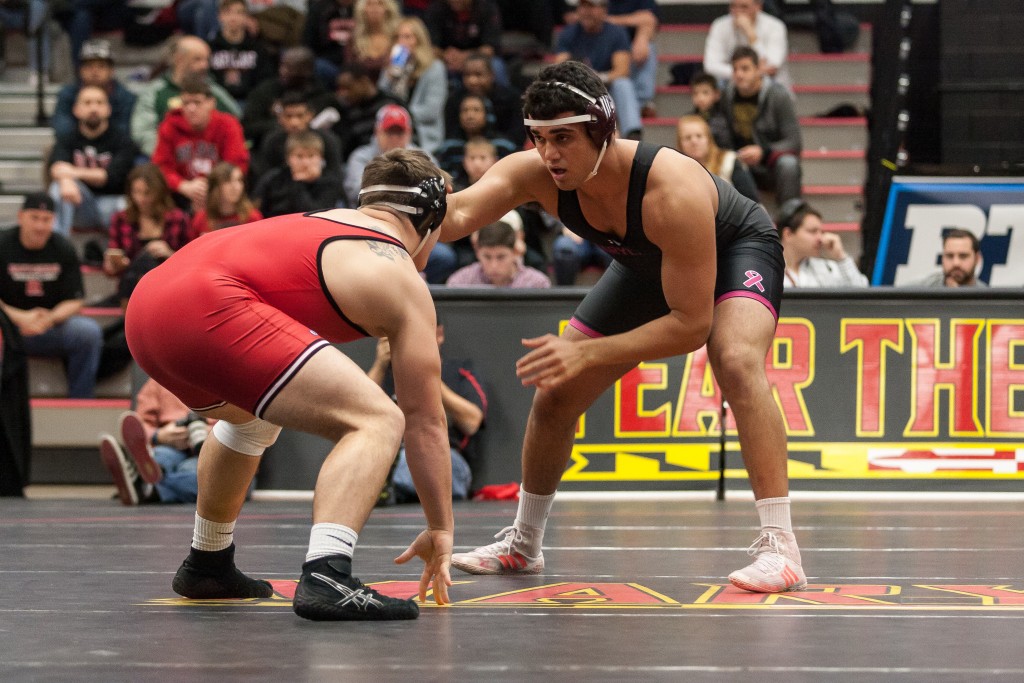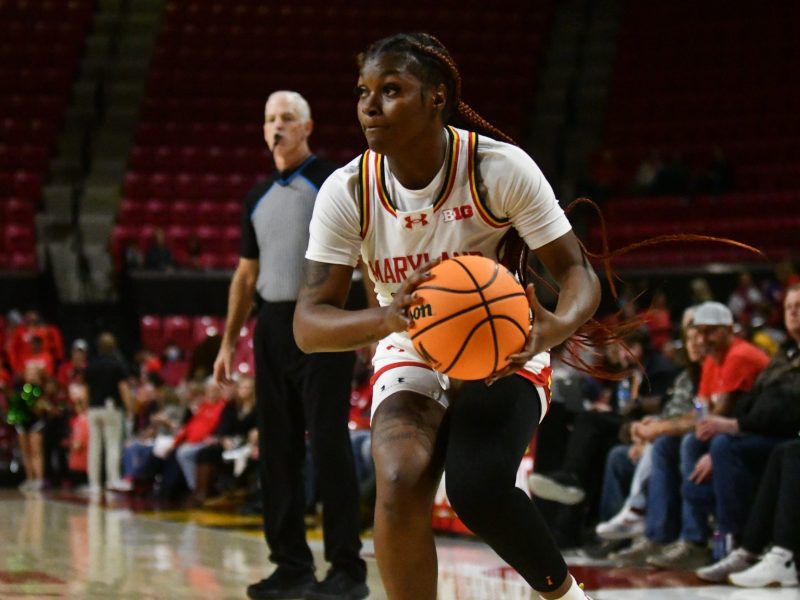Ask almost any Maryland sports coach about their upcoming opponent, and their answers will likely be the same: “We’re just focused on our own play.” It’s a way to deflect pressure and avoid making controversial remarks.
But Maryland wrestling coach Kerry McCoy does not follow that philosophy. Instead, he speaks openly with his players and the media about the difficulty of the Big Ten, which features 11 ranked teams.
His strategy is part of the Terps’ larger focus on mental well-being that extends to leaning on a team psychologist for support from time to time. For a group that’s won just one Big Ten game since joining the conference — a victory against Michigan State on Jan. 10, 2016 — the approach has been crucial.
“You don’t want the first time you’re thinking about wrestling a nationally ranked guy [to be] when you’re on the mat with him,” McCoy said. “We try and visualize and talk about it throughout the year, so when you get out there on the mat you’ve kind of faced it multiple times before so now it’s just another day.”
[Read more: Maryland wrestling’s Ryan Diehl wants to build off his win vs. Illinois]
The preparation hasn’t yet carried over into dual meet success, as Maryland (4-10, 0-8 Big Ten) has struggled to find its footing in the conference. But players feel that the openness in the locker room has fostered individual growth.
Ryan Diehl, for example, has dealt with the intimidation of facing tough ranked opponents by previously speaking with the Terps’ psychologist.
“He’s always telling us … how mental state plays a big role in wrestling,” the 141-pounder said. “Just being able to get over that iceberg in your head of like, ‘Hey, I’m not this good,’ but actually telling yourself, ‘You’re better than this person, you’re better than this, you can do it.'”
[Read more: Despite its best meet of Big Ten play, Maryland wrestling fell to Illinois, 25-18]
Even heavyweight Youssif Hemida, by far Maryland’s best wrestler this season, said he gets in his own head sometimes. When that happens, he tenses up and is overcome with a series of negative thoughts regarding his own abilities.
It’s an issue Hemida hopes he and the Terps can improve down the stretch to reach their full potential.
“I see some guys in the practice room and I feel like sometimes they don’t wrestle out on the mat the way they do in the room,” Hemida said. “It’s actually way easier said than done, but I think guys need to go out there and just wrestle and not worry about all the things, like how we haven’t won a Big Ten match.”
As Maryland tries to overcome the mental hump of its losing skid, McCoy encourages his players to use ranked matches as opportunities for his team to take their game to the next level.
“In order to achieve your goals and be an All-American national champ, these are the guys you’re going to have to face and be able to beat them,” McCoy said.



